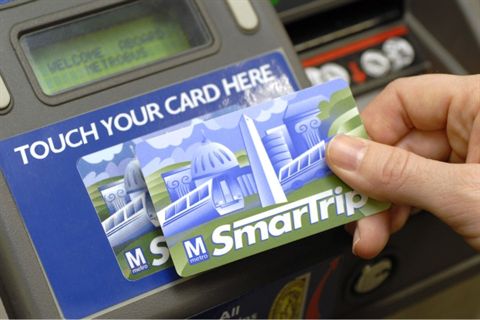Around this time last year, Congress had a decision to make: Extend the transit tax benefit for commuters at its post-stimulus rate of $230 — the same as the parking benefit for drivers — or relegate transit riders to second class citizenship once again. Last year, Congress made the right choice and maintained parity between the two. Despite an urgent call this week from 22 senators, it's looking like we might not be so lucky this year.

Unless some action is taken before Congress adjourns, the maximum federal transit commuter tax benefit — pre-tax income which employees can spend on transit fares — would be slashed to $125 per month effective January 1st, while the commuter parking tax benefit would actually increase from $230 to $240.
Neither of the two committees responsible for extending the benefit — House Ways and Means and Senate Banking — has shown a willingness to take up the provision. Several weeks ago, Rep. Richard Neal (D-MA) wrote to his colleagues in the House, warning of the impending end to several popular programs, including transit benefits. Many other groups and individuals have echoed that call. Yesterday, they were joined by no fewer than 22 senators, from both sides of the aisle, in sending a letter to the Banking Committee leadership, urging them to take up the issue. Only two Republicans joined 20 Democrats in signing on to the letter: Mark Kirk of Illinois and Scott Brown of Massachusetts, the only two Republicans representing significantly urban states in the Senate. The letter read in part:
Commuter benefits are one of the core benefits offered by employers, after health, retirement, and disability benefits. Nationally, more than 2.5 million people now use the transit benefit, with over 250,000 of those users spending more than $125 per month. For these commuters with high monthly costs, the imminent drop in the benefit cap will result in an increase in the cost of commuting of up to 22 percent.
Transit agencies themselves would be also affected by the drop in transit benefits. The Examiner projects that if the benefits revert to a measly half of the parking benefit, Washington’s cash-strapped Metro would suffer a 2.8 percent drop in rail ridership, resulting in $16 million less in annual revenue. Compare that to Rep. Earl Blumenauer’s (D-OR) proposal from this past spring, whose “parking cash-out” provision has been tied to increases in transit and non-motorized mode share among commuters. What could be a powerful tool to level the playing field for modal subsidies is instead about to become an excise tax on transit providers.
What’s truly frustrating for advocates and supporters of the program is that “[f]ew, if any, lawmakers are outright opposed to extending the transit benefit, but several suggested it could simply lose out to more expensive, time-consuming extenders debates,” according to Politico. In the meantime, several advocacy groups are making a concerted push to be heard amid Congress' cacophonous gridlock, with members already receiving over 50,000 letters.
A bill that would extend the transit benefits is waiting to be taken up in the House and Senate. According to the American Public Transportation Association, failure to act would create "a financial bias in the federal tax code against public transit use."
Rather than trying to raise the transit benefit in a spending-averse Congress, would it make more sense to lower the parking benefit, as another way to achieve parity? Transportation For America says it wouldn't work. Apparently cutting support for driving subsidies is even more politically toxic than raising spending.





